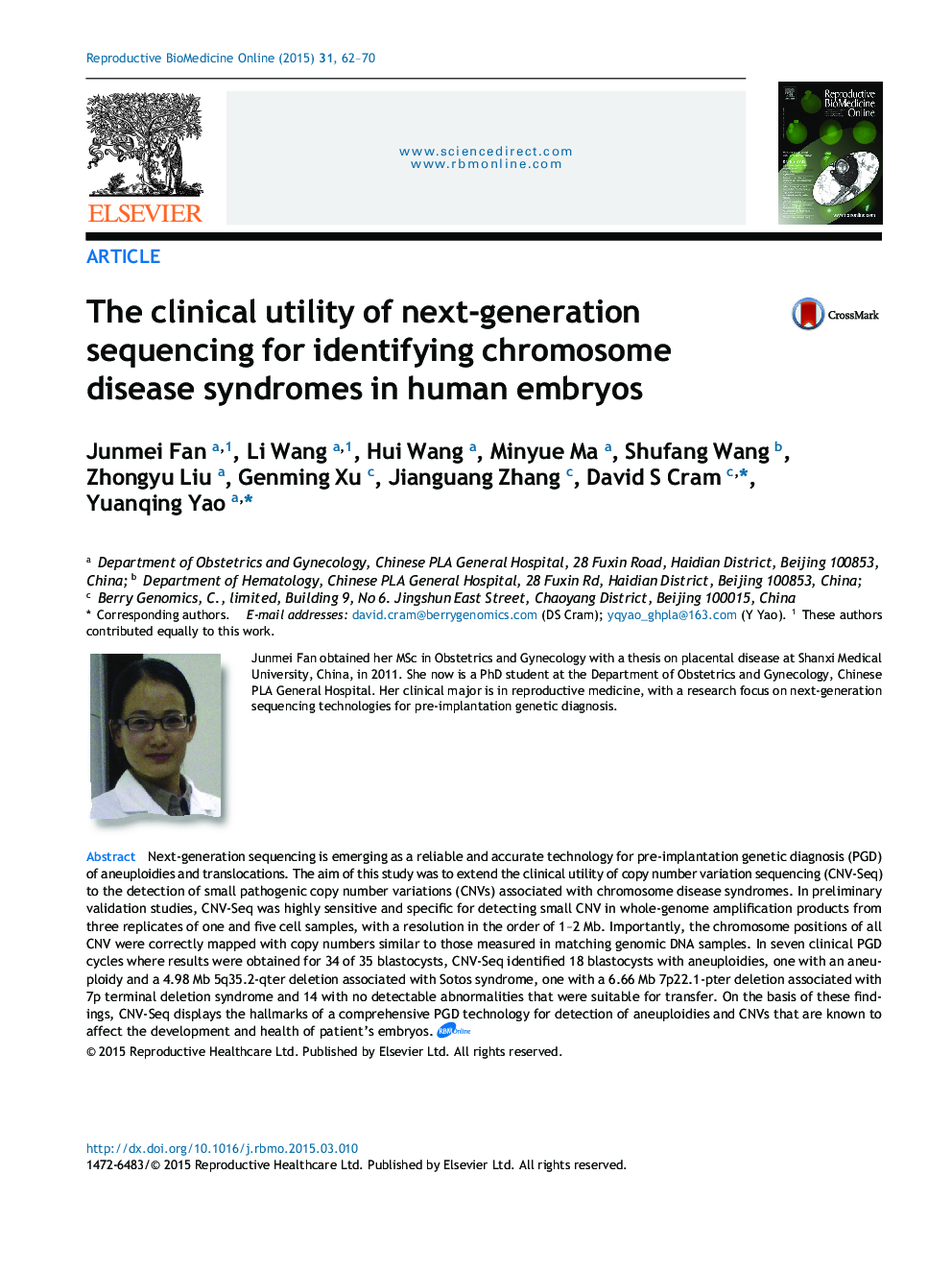| Article ID | Journal | Published Year | Pages | File Type |
|---|---|---|---|---|
| 6188814 | Reproductive BioMedicine Online | 2015 | 9 Pages |
â¢Copy number variation sequencing (CNV-Seq) is a new technology for identifying chromosome abnormalities in human embryos.â¢CNVs as small as 1-2 Mb in size could be reliably and accurately detected in cell samples modeling blastomere and blastocyst biopsies.â¢PGD of a small cohort of 35 blastocysts assessed by CNV-Seq identified two pathogenic CNVs associated with Sotos and 7p terminal deletion syndrome.
Next-generation sequencing is emerging as a reliable and accurate technology for pre-implantation genetic diagnosis (PGD) of aneuploidies and translocations. The aim of this study was to extend the clinical utility of copy number variation sequencing (CNV-Seq) to the detection of small pathogenic copy number variations (CNVs) associated with chromosome disease syndromes. In preliminary validation studies, CNV-Seq was highly sensitive and specific for detecting small CNV in whole-genome amplification products from three replicates of one and five cell samples, with a resolution in the order of 1-2 Mb. Importantly, the chromosome positions of all CNV were correctly mapped with copy numbers similar to those measured in matching genomic DNA samples. In seven clinical PGD cycles where results were obtained for 34 of 35 blastocysts, CNV-Seq identified 18 blastocysts with aneuploidies, one with an aneuploidy and a 4.98 Mb 5q35.2-qter deletion associated with Sotos syndrome, one with a 6.66 Mb 7p22.1-pter deletion associated with 7p terminal deletion syndrome and 14 with no detectable abnormalities that were suitable for transfer. On the basis of these findings, CNV-Seq displays the hallmarks of a comprehensive PGD technology for detection of aneuploidies and CNVs that are known to affect the development and health of patient's embryos.
